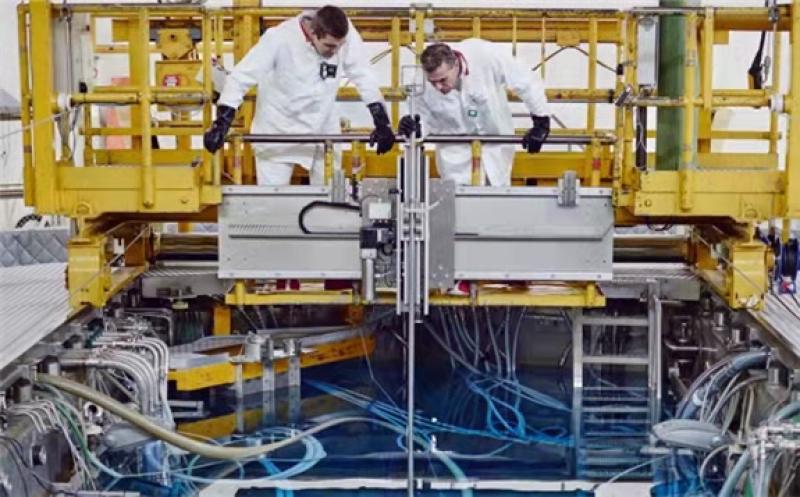The Nuclear Research and Consultancy Group (NRG) has ended its use of high-enriched uranium (HEU) targets in the production of radioisotopes at the High Flux Reactor (HFR) in Petten, the Netherlands. The reactor itself was converted from HEU fuel, which can pose a proliferation risk, to low-enriched uranium (LEU) fuel in 2006.

Until recently, the production of isotopes for NRG's Belgian partner, the Institute for Radioelements (IRE), was still based on using HEU targets because IRE could not fully process LEU. However, IRE has now partially converted its chemical process to LEU meaning that NRG has now ended the use of HEU targets in HFR.
In 2018, NRG and global nuclear medicine company Curium also converted the molybdenum-99 (Mo-99) production process in the Molybdenum Production Facility at Petten to LEU. This, NRG said, was "a huge step because it concerned the whole production chain, from purchasing HEU, irradiation, chemical processing to waste treatment and disposal".
Mo-99 is used worldwide 40 million times every year in diagnostic examinations in hospitals, among others by oncology, cardiology and neurology. This involves patients being injected with a slightly radioactive liquid.
According to NRG, the facilities used at Petten are the first in Europe to stop using HEU for the production of Mo-99.
"We are delighted that the final step has now been taken and that our partners for the production of medical isotopes from the HFR no longer need high-enriched uranium," said Vinod Ramnandanlal, commercial director at NRG. "In fact, in this way we achieve a kind of non-proliferation quality mark for medical isotopes."
The 45 MW HFR started operating in September 1960, since when its use has largely been shifted from nuclear materials testing to fundamental research and the production of medical radioisotopes. The reactor - operated by NRG on behalf of the European Union's Joint Research Centre - has for a long time supplied about 60% of Europe's and 30% of the world's use of medical radioactive sources. Some 30,000 patients every day depend on medical isotopes from the Netherlands.
The Dutch government gave its approval in January 2012 for the construction of a replacement for the ageing HFR. The new reactor, known as Pallas, is expected to begin operation around 2024.